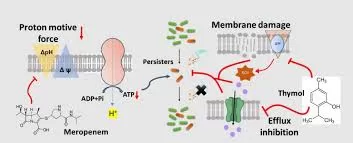India’s journey towards becoming a healthier nation is deeply intertwined with the promotion of health and sanitation. Both are essential for fostering physical well-being, social progress, and economic growth. The importance of these aspects has been emphasized not only in modern public health policies but also in ancient cultural and religious practices.
Historical and Cultural Context
Sanitation and hygiene have been central to Hindu society for centuries, rooted in religious texts such as the Vedas, Manusmriti, Ramayana, and Mahabharata. These scriptures highlight cleanliness as a pathway to spiritual purity and mental well-being. Rituals like bathing, handwashing, and maintaining clean surroundings are integral to Hindu practices, reflecting the connection between physical hygiene and spiritual sanctity.
A study conducted in Chunikhel, Lalitpur district, Nepal, explored the knowledge, attitudes, and practices (KAP) of sanitation and hygiene among Hindus aged 35 years and above. The findings revealed that most respondents prioritized personal hygiene, safe drinking water, household sanitation, and toilet use. For instance, 82% recognized handwashing as crucial for preventing diseases, while 88.67% acknowledged the importance of treated drinking water for health.
Modern Challenges and Progress
Despite the historical emphasis on cleanliness, modern challenges such as urbanization, population growth, and environmental degradation have strained sanitation infrastructure in India. However, initiatives like the Swachh Bharat Abhiyan (Clean India Mission) have made significant strides in addressing these issues. The campaign has focused on eliminating open defecation, improving waste management systems, and promoting behavioral changes regarding hygiene.
The study in Chunikhel also highlighted evolving attitudes within Hindu society. While traditional practices remain influential during religious rituals, there is growing recognition of hygiene’s role in physical health and social prestige. This shift reflects broader societal changes where education plays a key role in shaping awareness and practices.
The Path Forward
To build a healthier India, it is crucial to integrate traditional values with modern scientific approaches to sanitation and hygiene. Policymakers must prioritize investments in clean water supply systems, waste management infrastructure, and public awareness campaigns. Education remains a cornerstone for fostering behavioral changes across diverse communities.
Moreover, leveraging cultural beliefs about cleanliness can enhance public health initiatives by aligning them with deeply ingrained societal values. For example, promoting handwashing not only as a preventive measure but also as a form of devotion could resonate with religious sentiments.
Disclaimer:This article is based on information from secondary sources such as studies conducted in Hindu societies and government reports on sanitation policies. The interpretations provided aim to summarize findings without asserting absolute conclusions about individual or community practices. Readers are encouraged to refer to original research for detailed insights.
Citations:
[1] https://nepjol.info/index.php/hj/article/download/59045/44122/174742












